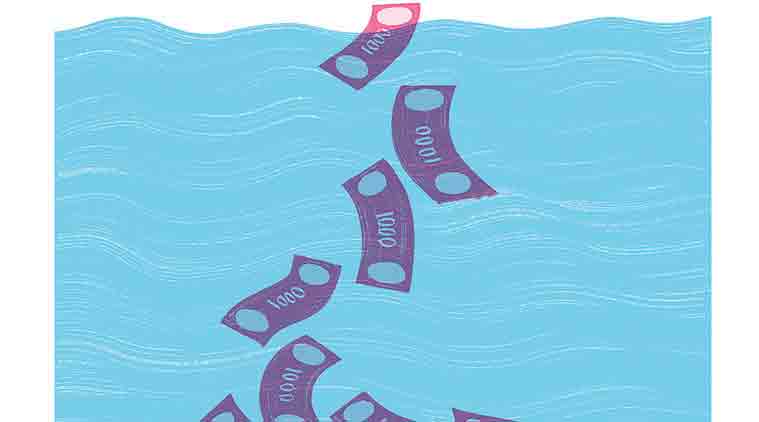Demonetisation, a cautionary tale
The heavily flawed policy decision continues to adversely affect us

Demonetisation, a cautionary tale
It is remarkable how Prime Minister Narendra Modi doesn’t talk about demonetisation anymore. For a leader who is not shy about promoting even the most modest of his achievements, it speaks volumes about the degree to which demonetisation failed. Especially on the second anniversary of what his supporters once called a game-changing policy initiative. For a man who asked the nation to “hang him” if demonetisation did not succeed in 50 days, such silence even after 730 days speaks volumes to the nation.
We now know that PM Modi failed on every single yardstick that he and his team set. Black money has not been eradicated. With 99.9 per cent of all cash coming back into the banking system, Modi’s promise to the nation (and before the Supreme Court) that over Rs 3 lakh crore would be recovered by the government has proved to be false.
On curbing terrorism, we are witnessing a period of unprecedented unrest both in areas affected by Naxal violence (with 114 officials martyred) and at our borders (with 127 security officials being martyred and 99 civilians having lost their lives) in the days after demonetisation. On eliminating fake notes, it turns out that the problem was greatly exaggerated. The fake currency found is a mere 0.0034 per cent of all the notes in circulation. In sum, we spent over Rs 30,000 crore of tax payer money to recover a little over Rs 7,000 crore. There is no democracy in the world that would tolerate such a monumental failure, born out of arrogance and recklessness.
We are still assessing the damage caused to the economy. The Centre for Monitoring of Indian Economy recently published its survey, which presented three grim findings: One, “at least” 3.5 million jobs were lost. Two, the labour force itself shrank by 15 million. Three, women, an already vulnerable part of the workforce, were worse hit than men.
The government’s silence is punctuated only by the sound of the finance minister’s Diwali blog, which desperately seeks to reset a narrative that has gone out of their control. Arun Jaitley now says the objective was formalisation or reducing the dependency of citizens on cash. Unfortunately for Jaitley, this claim has been proven incorrect by the RBI in its annual report, published in August (where much of the data mentioned in the first paragraph also comes from). The report states that “India’s currency to GDP ratio moved up to 10.9 per cent in 2017-18, returning to being amongst the highest levels of currency usage in peer emerging market economies (EMEs) and advanced economies (AEs) as well. In consonance, the use of digital payments, which had surged to a peak in December 2016 in the aftermath of demonetisation, fell back to the elevated post-demonetisation trend before rising in recent months.”
The individuals, who lost their lives in the aftermath of Modi’s grand announcement and due to lack of institutional preparedness, are not even acknowledged by the man who promised “sabka saath, sabka vikas”.
However, in addition to the above, there are other, more sinister inferences, that have emerged in the two years since its passage.
First, it was, as Rahul Gandhi aptly put it, a “fair-and-lovely” scheme, to whitewash the unaccounted wealth held by key cronies in politics and industry. We are yet to find the example of a single wealthy industrialist who was prosecuted or even inconvenienced as a result of this exercise. In fact, high net worth defaulters have never had it this good. The count of those leaving India with taxpayer money increases every day and the government does nothing.
Second, prima facie, it appears that the government used its insider knowledge to benefit the ruling party. A cooperative bank in Ahmedabad, which enjoys the distinction of having Amit Shah as a director (and former chairman), ended up being the only district bank to have received the largest majority of old currency notes in the entire country. This is too remarkable a coincidence to be ignored. Multiple other instances of suspicious transactions implying collusion between the government and participants having ties with the ruling party are in the public domain, but none of them have been investigated.
The cascading impact of this policy decision continues to adversely affect all of us. To shore up its losses caused by demonetisation and other acts of economic mismanagement, the government has chosen to plunder the RBI’s reserves of over Rs 3.6 lakh crore, a step never before taken by any government in the past except once, at a time of war.
Demonetisation is now taught as a cautionary tale by academics across the world. It seems that Modi is likely to meet with the same fate.
The writer is an MLA in the Haryana Legislative Assembly and AICC In Charge of Communications
For all the latest Opinion News, download Indian Express App
More From Randeep Singh Surjewala
- Authoritarianism checkmatedSupreme Court verdict upholds UPA framework for Aadhaar, censures Modi government..
- Lights, Camera, No ActionFour years of NDA government have put India on a downward spiral..
- This is no reformToothless bill criminalising triple talaq is meant only to score political points...








































No hay comentarios:
Publicar un comentario